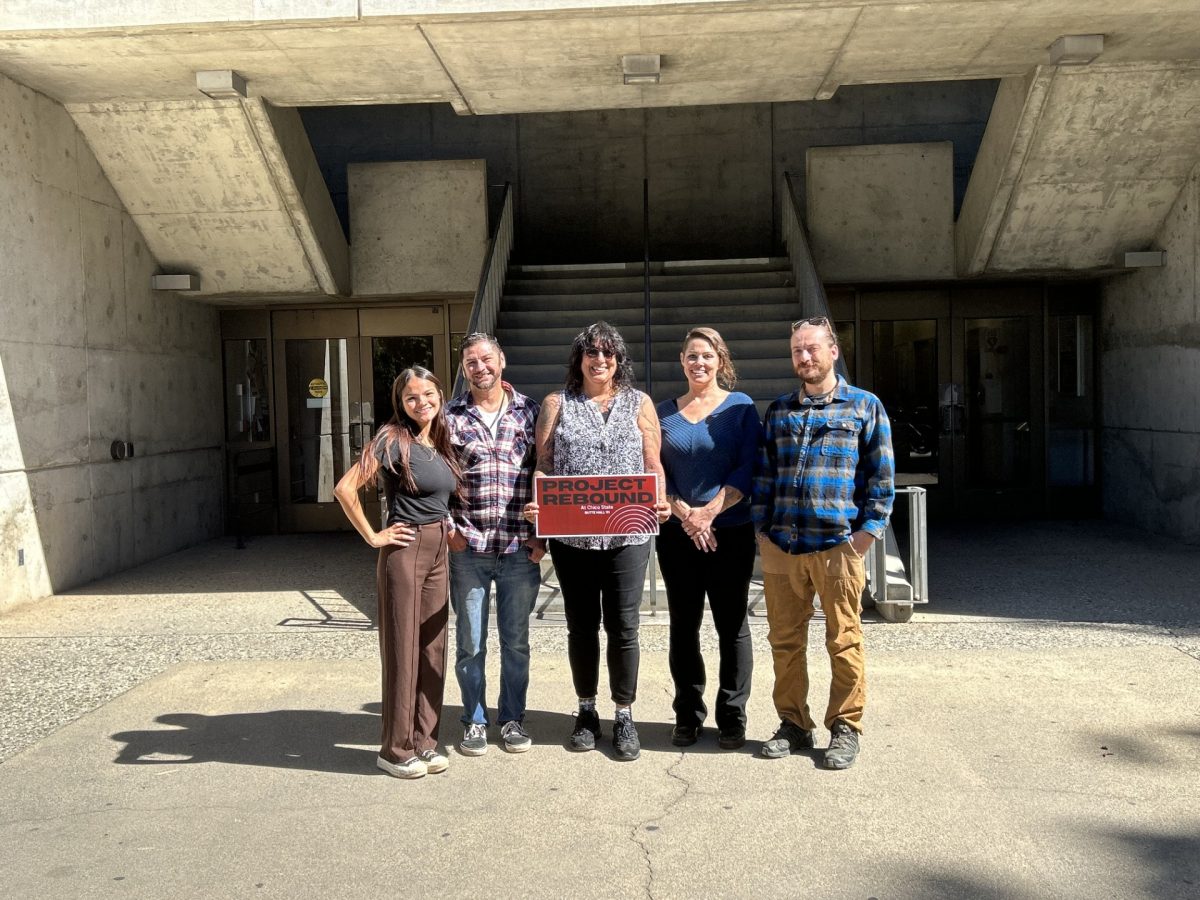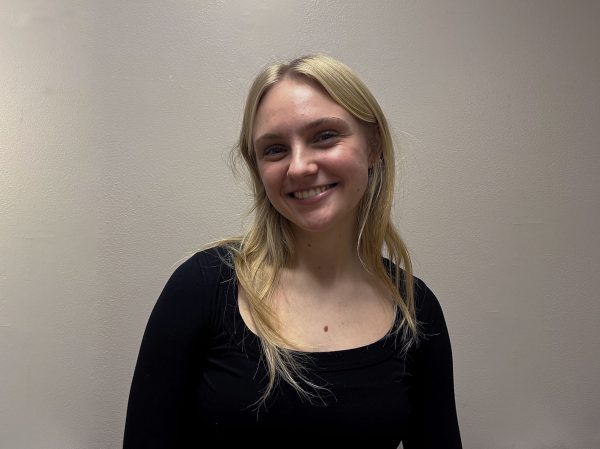In 2023 Chico State launched Project Rebound, a student success program that supports Chico State students who have been incarcerated in a juvenile detention center, immigration detention center, jail or prison.
The California State University program has been around since 1967, but came to Chico State in August 2023, interim director, Gabby Medina Falzone, said.
Spearheading the start of the organization, Benny Gutierrez started Project Rebound Scholars, a club for incarcerated students, in spring 2022, but has since graduated. He connected with Falzone who became the club faculty supervisor, and both went on to establish Project Rebound on campus.
Following his release from incarceration in 2022, Sam Lanier now holds the title of presidential scholar in the business management graduate school. He first encountered Project Rebound at Cal Poly Humboldt, which allowed him to thrive in his academic pursuit.
After graduation, Lanier faced legal troubles and had to serve eight months in prison starting in December 2022. While incarcerated, Lanier was connected with Falzone and was able to work his way into his full-time position upon his release.
Lanier said that it is reassuring “knowing there’s something good waiting for you when you get back.”
Project Rebound’s primary goal in its early stages is to identify and connect with current Chico State students who were formerly incarcerated, Falzone said.
The Chico State Project Rebound press release stated that Chico State’s program is one of four new Project Rebound programs that started in the 2023-2024 school year. The program can be found at 19 total CSU campuses.
Project Rebound programs are generally funded by the State of California under Senate Bill 102, but in summer of 2023, the CSU Chancellor’s Office took over as fiscal sponsor of the program’s fund, the press release said.
The funding, originally set for distribution in June 2023, was delayed until November 2023.
Up until June 2023, Project Rebound ran itself without funding and oversaw its own money from the state, Falzone said. The funds were received by Chico State from the Chancellor’s office in November 2023, but were not disbursed until February 2024.
Before receiving funding, the program used grants and other means of providing students with financial support, Falzone said.
Despite running without funding, Project Rebound has been focusing on the following:
- Developing the basic foundation needed to run a new campus program
- Supporting current Chico State students with a past of being incarcerated
- Connecting students to on-campus resources
- Providing a center with snacks, a computer and printer, microwave and other resources for students impacted by Project Rebound
- Contributing to building a pipeline to Chico State from Northern California community colleges that serve incarcerated and formerly incarcerated students
Though CSU Programs typically wait to receive funding, Falzone said that Chico State’s Project Rebound “decided to start without knowing when we were getting money and how much money we were going to get.”
The Project Rebound website states one of the program’s guiding principles is “Formerly Incarcerated Leadership.” As a non-formerly incarcerated member, Falzone looks forward to the program one day completely being run by formerly incarcerated students.
As a whole, the CSU program also aims to connect with currently incarcerated prospective students or people who have been released from their sentence and are interested in attending college.
Formerly incarcerated students, like Renee Richard, relied on Project Rebound for admission to Chico State and student resources.
In 2018, Richard first attempted to enroll in college but had insufficient funds. She applied again in 2019 and was admitted to Chico State.
“I decided to go back to school to hopefully improve my life and get a better job,” Richard said.
At first, Richard said that the transition to attending the university was difficult.
“I felt very out of place and very isolated because I was surrounded by people with different life experiences,” Richard said.
It wasn’t until Richard came into contact with Gutierrez that she was introduced to Project Rebound and its resources. She was able to connect with what the program has to offer and other students in her position.
Formerly incarcerated Chico State students can fill out the eligibility and interest form to start their Project Rebound application process. Once their form has been evaluated, eligible students will have an intake appointment to identify their needs and how the program can assist them.
Project Rebound is also working toward providing currently incarcerated individuals with resources to apply to Chico State so that they may enroll upon their release. The program will assist these prospective students with completing FAFSA, CalState Apply applications and help identify their needs as a future college student.
Another student in the program, David Flores, completed his general education in prison before reaching out to Project Rebound so that he could enroll in college upon being released.
“Project Rebound provides financial support such as helping me pay for my books, if I need a gas card, they’re planning on having a meal plan for Project Rebound students so I’ll be able to get a meal everyday, and if there was any type of emergency necessity that I had, I could reach out to Project Rebound,” Flores said.
Many prisons offer community college for incarcerated students where they receive their Associates degree and can move on to enrolling in college upon their release.
Some Project Rebound programs at other CSU campuses offer Bachelor degrees in prisons, but Chico State’s is not at that stage yet, Falzone said. Instead, it can help incarcerated students with their transfer credit so that they can apply to college and complete their degree after they have been released.
“A lot of people in prison are obtaining their AA degrees, so having a bridge and a connection on the outside at a university where they can get a BA can help them start their lives over,” Richard said.
Project Rebound encourages current Chico State students to learn about the program even if they have not been formerly incarcerated themselves. The program also has resources for system-impacted students who live in a household with one or more family member or loved one who is or has been incarcerated. System-impacted students may also be dependent on a loved one in one of these situations, but do not live with them.
Currently, Project Rebound’s office is in Butte 111, which is subject to change due to upcoming campus changes. The drop-in center is open to all system-impacted students and those interested in Project Rebound.
These students are welcome as part of the community and encouraged to use the center’s resources, though Project Rebound funding is for formerly incarcerated students only, Falzone said.
If you or someone you know may benefit from Project Rebound resources and funding, go here for contact information and drop-in center hours.
This article was edited on April 13 due to clarifications about the definition of system-impacted students.
Grace Stark can be reached at orionmanagingeditor@gmail.com.








